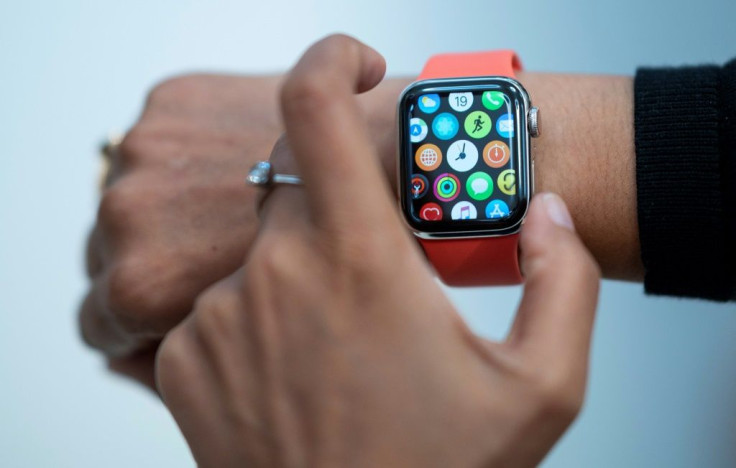Can Apple Watch Detect Coronavirus? Stanford Researchers Hope To Find Out Answer
KEY POINTS
- Stanford researchers are looking into using wearables like the Apple Watch against COVID-19
- The researchers are looking at the data these wearables acquire on a daily basis
- The study will last two years, and is inviting those who have wearables and are exposed to the virus
The Apple Watch is known for its ability to monitor a user's heart rate and alert them of any irregularities in their heart rhythms, if any.
Researchers from Stanford University recognized the wearable's effectiveness and used it in the largest arrhythmia study it conducted last year. This study more than 419,000 Apple Watch owners sharing the data acquired by the wearable.
Now, Stanford University researchers are once again conducting a study using the Apple Watch, this time with the intention of determining whether it can be used to detect COVID-19 infections in any person.
According to Gizmodo, researchers led by Michael Snyder, director of genomics and personalised medicine at Stanford, have launched the Wearables Data Study to see if the information that wearables like the Apple Watch and Fitbit can be used to “track infectious diseases like COVID-19” and that if the data can be used to “predict the onset even before any symptoms start.”

The study primarily involves people who are either confirmed to have contracted the virus or at least suspected to have contracted it, such as those who are at higher risk of exposure to the virus due to direct contact or general exposure (like health care workers, grocery store workers, law enforcers). The study currently does not include those who do not fall in these categories.
The Wearables Data Study will require those who opt-in to constantly wear a fitness tracker like the Apple Watch or those from Fitbit and Garmin. Participants will be required to download an app and fill out a 2-minute symptom survey on a daily basis. The study will last for up to two years.
The study aims to gather as much information from these fitness trackers as possible. The data includes heart rate, skin temperature and blood oxygen saturation, among others. Participants will share the data, and researchers will look if there are patterns worth looking into.
Researchers admit that the study cannot “guarantee or promise” to pay any participant to share relevant medical information. They also admit that “there might be some loss of confidentiality for the data collected by the wearable devices.”
Nevertheless, Snyder believes that the millions of smartwatches being used on a daily basis “could be health protectors for diseases like covid-19.” This of course, can only happen if they are indeed able to detect infection before symptoms appear.
© Copyright IBTimes 2024. All rights reserved.





















